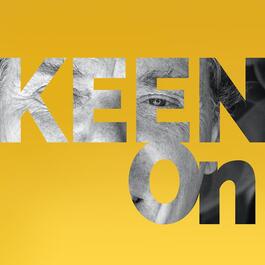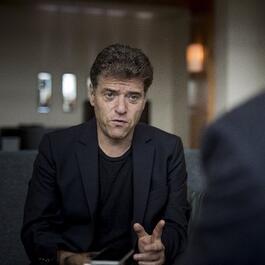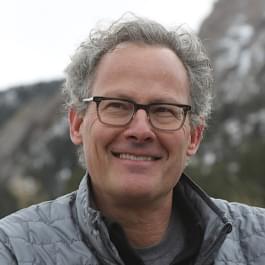
Episode 2301: Nicholas Carr on how the Arc of Innovation Bends Towards Decadence
Nicholas Carr has been amongst the most persistently prescient observers of the digital revolution over the last quarter century. Take, for example, his 2012 essay "The Arc of Innovation Bends Towards Decadence," which, in many ways, foresaw our current technological and social predicament. Carr's thesis was that technological innovation increasingly moves toward fulfilling self-indulgent desires rather than addressing fundamental human needs, following a pattern similar to Maslow's hierarchy of needs. Carr accurately predicted the shift from idealistic views of technology as tools for self-actualization to their current role in feeding narcissism and anxiety. The timing of his essay proved particularly significant, as 2012 marked a crucial turning point when smartphones became dominant and social media reached mass adoption. This period coincided with what social psychologists like Jonathan Haidt identify as the beginning of a sharp rise in anxiety and decline in self-confidence, especially among young people. Carr's insights extend to current debates about AI, where he sees a potentially "decadent" trend of outsourcing fundamental human activities like writing and thinking to machines. He frames this as part of a broader pattern where technology, instead of enhancing human capabilities (in the manner of Steve Jobs' "bicycle for the mind"), increasingly substitutes for them entirely. Most notably, Carr recognized early on that digital technologies, while promising connection and democratization, often trigger "our worst instincts." His analysis helps explain why, despite growing awareness of social media's negative effects, we remain unable to disentangle ourselves from these technologies - a phenomenon he describes as "mis-wanting." Essential stuff, as always, from the great Nick Carr. Nicholas Carr writes about the human consequences of technology. His books, including the Pulitzer Prize finalist The Shallows: What the Internet Is Doing to Our Brains and the forthcoming Superbloom: How Technologies of Connection Tear Us Apart, have been translated into more than twenty-five languages. He has recently been a visiting professor of sociology at Williams College, and earlier in his career he was executive editor of the Harvard Business Review. In 2015, he received the Neil Postman Award for Career Achievement in Public Intellectual Activity from the Media Ecology Association. He writes the Substack newsletter New Cartographies. A New York Times bestseller when it was first published in 2010 and now hailed as “a modern classic,” Carr’s The Shallows remains a touchstone for debates on the internet’s effects on our thoughts and perceptions. A second edition of The Shallows, updated with a new chapter, was published in 2020. Carr’s 2014 book The Glass Cage: Automation and Us, which the New York Review of Books called a “chastening meditation on the human future,” examines the personal and social consequences of our ever growing dependency on computers, robots, and artificial intelligence. His latest book, Utopia Is Creepy, published in 2016, collects his best essays, blog posts, and other writings from the past dozen years. The collection is “by turns wry and revelatory,” wrote Discover. Carr is also the author of two other influential books, The Big Switch: Rewiring the World, from Edison to Google (2008), which the Financial Times called “the best read so far about the significance of the shift to cloud computing,” and Does IT Matter? (2004). Named as one of the "100 most connected men" by GQ magazine, Andrew Keen is amongst the world's best known broadcasters and commentators. In addition to presenting KEEN ON, he is the host of the long-running How To Fix Democracy show. He is also the author of four prescient books about digital technology: CULT OF THE AMATEUR, DIGITAL VERTIGO, THE INTERNET IS NOT THE ANSWER and HOW TO FIX THE FUTURE. Andrew lives in San Francisco, is married to Cassandra Knight, Google's VP of Litigation & Discovery, and has two grown children. This is a public episode. If you'd like to discuss this with other subscribers or get access to bonus episodes, visit keenon.substack.com/subscribe
From "Keen On America"




Comments
Add comment Feedback